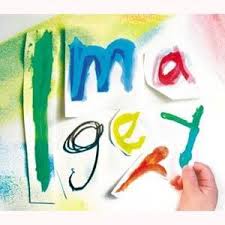记忆方法
将“imagery”想象为“image”加上“-ry”后缀,表示一系列或大量“图像”。可以将这个词与“image”的视觉效果和“-ry”作为后缀表示“性质”或“状态”的概念联系起来,从而记忆为“图像的表现或性质”。
以上内容由AI生成, 仅供参考和借鉴
中文词源
imagery 意象,影象
来自image,形象,印象,影像。
英语词源
- imagery (n.)
- mid-14c., "piece of sculpture, carved figures," from Old French imagerie (13c.), from imagier "painter," from image (see image (n.)). Meaning "ornate description" (in poetry, etc.) is from 1580s.
权威例句
- 1. She was horrified at the dehumanisation involved in much of the imagery.
- 这些意象在很大程度上表现出的人性泯灭让她深感惊骇。
- 2. This is an ambitious and intriguing movie, full of striking imagery.
- 这是一部气势恢宏、引人入胜的电影,充满了动人心魄的瑰丽意象。
- 3. the poet's luxuriant imagery
- 诗人丰富的意象
- 4. He argued that Shakespeare's plays were patterns of imagery.
- 他认为莎士比亚的剧本是形象塑造的典范.
- 5. Music, mime and strong visual imagery play a strong part in the productions.
- 音乐、哑剧动作和强烈的视觉影像在表演中产生了强烈的效果。
